How the upper classes 'bonk'
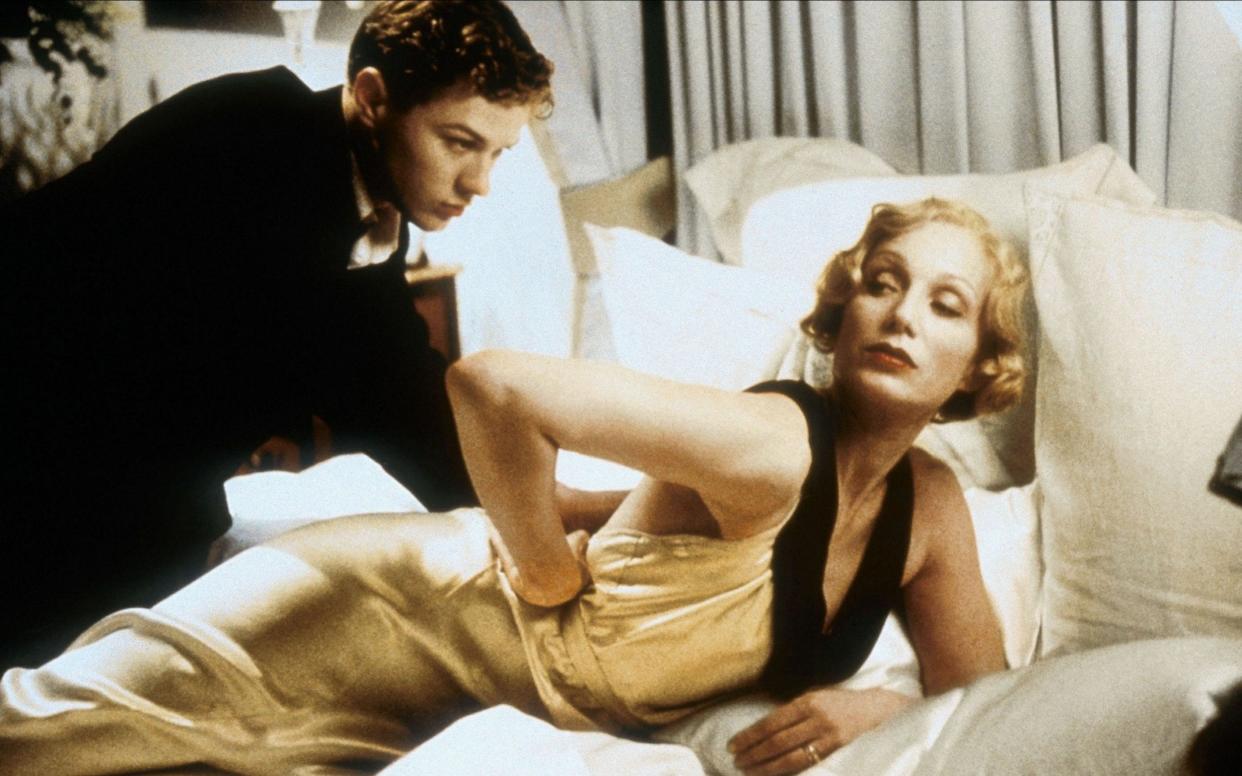
F Scott Fitzgerald said in The Rich Boy [1926] that the very rich “are different from you and me”. Well, so are the upper classes, particularly when it comes to sex.
Penny Junor, biographer of the Duchess of Cornwall, confirmed as much this week at Henley Literary Festival, suggesting that researching her latest subject had been most revelatory about “just how the upper classes bonk” (as some of them continue to call it, Seventies style).
The landed classes traditionally had rather elastic attitudes towards marital fidelity. If your spouse was unfaithful, you had two clear choices: ignore it and take up gardening, or quietly find your own lover. The one thing you mustn’t do was complain
Rowan Pelling, editor of The Amorist
Junor claims the then Camilla Shand only slept with Prince Charles in 1971 to take revenge on her philandering boyfriend, later husband, Andrew Parker Bowles - who was cheating on her with Princess Anne at the time.
“When [Camilla] was introduced to Charles, he thought she was pretty special and he thought she was a bit of all right,” Junor said. “And she thought, ‘Andrew is at the moment off with Princess Anne; I’ll teach him a lesson’; so she had a fling with Charles.”
We all know what happened next. Camilla married Andrew Parker Bowles in 1973. He continued to play the field and she later resumed her affair with Charles, breaking up his marriage to Princess Diana.
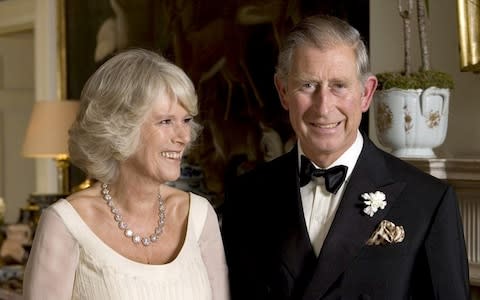
To those of us of a more conventional, middle-class temperament, all this is rather shocking. But, in the licentious boudoirs of Britain’s country houses, that sort of behaviour is completely run of the mill, and always has been.
“The landed classes traditionally had rather elastic attitudes towards marital fidelity,” says Rowan Pelling, editor of The Amorist. “If your spouse was unfaithful, you had two clear choices: ignore it and take up gardening, or quietly find your own lover. The one thing you mustn’t do was complain. That was seen as rather babyish. That’s why all Charles’s friends disapproved of Diana: she protested like fury.”
The upper classes have always been freed from conventional mores by money, history, attitude, and multiple huge houses. It’s easier to have an affair if you can push off to your schloss in the country, and leave your wife in the London townhouse. A little more difficult if you’re squeezed together in a two-up, two-down.
It’s easier to have an affair if you can push off to your schloss in the country, and leave your wife in the London townhouse. A little more difficult if you’re squeezed together in a two-up, two-down
In upper-class circles, affairs just aren’t shocking; they’re often even expected. When Princess Diana confronted Charles about his affair with Camilla, he supposedly said, “Well, I refuse to be the only Prince of Wales who never had a mistress.”
Camilla Parker Bowles may not be of royal blood, but she comes from the same swinging world of devil-may-care, free-and-easy bonking. The Gloucestershire hunting set – to which the Duchess belongs – is at the raciest end of this footloose, fancy-free world.
According to legend, her first line to Prince Charles on meeting him at a party was, “My great-grandmother and your great-great-grandfather were lovers – so how about it?”
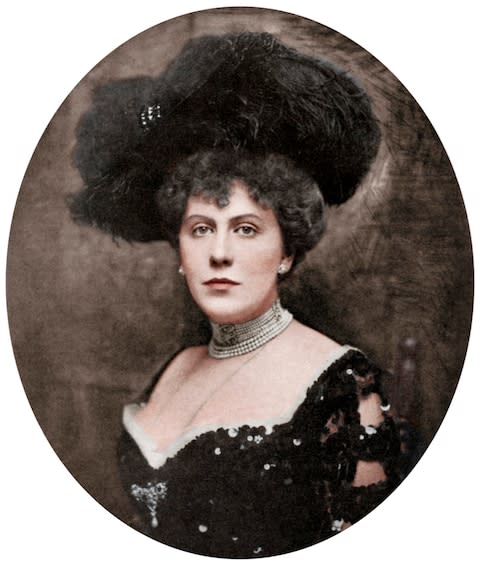
She was referring to the affair between Edward VII and her ancestor Alice Keppel. But she could just as well have been referring to dozens of ancestors, royal and upper-class, on both sides.
There was racy Prince Albert Victor (1864-92), Edward VII’s oldest son, dead at 28. Wilder rumours suggested he was Jack the Ripper. In fact, he was out of London at the time of the East End killings. Other scandalous suggestions are more credible: that he had an affair with a chorus girl, caught gonorrhoea, and was wrapped up in an 1889 male brothel scandal.
Charles II had seven illegitimate sons who were ennobled: the Dukes of Richmond, Monmouth, Northumberland, St Albans, Cleveland and Grafton; and the Earl of Plymouth
William IV had ten illegitimate children with his mistress, Dorothea Jordan. The Prince Regent had several mistresses, including actress Mary Robinson, the Countess of Jersey, the Marchioness of Hertford and the Marchioness Conyngham. And so it goes on: Charles II had Nell Gwyn; Henry VIII, most famously of all, took six wives.
Sex, affairs and illegitimate children are literally written into the interlocking DNA of royalty and the upper classes. Several dukedoms were bestowed on the illegitimate sons of kings. Charles II had seven illegitimate sons who were ennobled: the Dukes of Richmond, Monmouth, Northumberland, St Albans, Cleveland and Grafton; and the Earl of Plymouth.
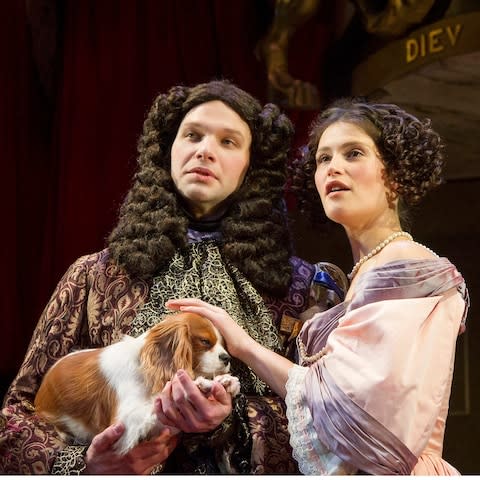
According to Junor, Prince Charles emulated his ancestor Charles II, by having affairs with upper-class, often married women throughout his 20s and 30s, but she has identified only one of them — Lady Tryon, nicknamed Kanga by the prince.
As Junor writes in The Duchess: The Untold Story, Kanga was married to one of the prince’s oldest pals, but when the “Bonny Prince . . . was on his way to see her, she cleared the house”.
With this long-standing royal sanction of affairs, the acceptability of extra-marital sex cascaded down through the upper classes – and was emulated by those who married into them, like Sir Jimmy Goldsmith. It was Goldsmith – the late husband of Lady Annabel Goldsmith, daughter of the Marquess of Londonderry – who came up with the immortal line, “When you marry your mistress, you create a vacancy.” It is immortal because, in aristocratic circles, it is true.
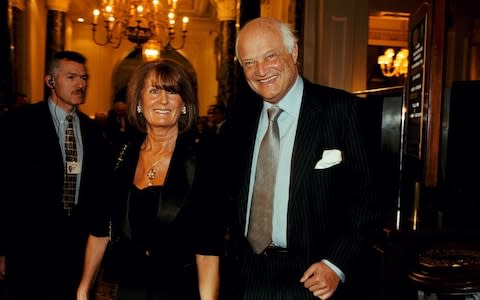
The free and easy attitude is oiled by huge amounts of money. Easy access to tides of cash means the talkative mistress can be paid off, or bought a handy pied-à-terre for lunchtime assignations. Ownership of separate houses in town and country means the spouse need never know what’s going on. It was an approach shared across Europe.
“The French aristocracy’s attitude was that the husband had business commitments in Paris, and the wife charitable endeavours in the village,” says Hugo Vickers, biographer of the Queen Mother and the Duke and Duchess of Windsor. “As they grew older, these diminished!"
The French aristocracy’s attitude was that the husband had 'business commitments' in Paris, and the wife 'charitable endeavours' in the village
Hugo Vickers, royal biographer
In France, the upper classes largely sold off, or lost, their country houses at the Revolution, and moved to town. Meanwhile, in Britain – where the monarchy was restored after the Civil War – the upper classes, and the Royal Family, clung on to their vast country estates and kept hold of their town houses and palaces. Two establishments – vital for blue-blooded hanky-panky – were retained.
In many ways, the wildest end of the upper classes behave like the freest spirits at the other end of the class spectrum: oceans of booze and free time; shedloads of drugs, endless sh------, and a relaxed approach to illegitimate children.
“The upper and lower classes do as they please, because class is a kind of circle not a straight line,” says Hugo Vickers, “The middle classes twitch their curtains and wash their cars on Sunday mornings.”
Discovery to recovery | 7 steps to coping after an affair
Which is not to say the upper classes don’t get angry when their spouses stray, it's just that the typical reaction is not to reach for the divorce papers, but to take revenge - as Junor suggested this week of Camilla’s response to Andrew Parker Bowles’s affairs.
“He was a cad, he was bonking other people, some of her friends,” Junor said. “There was a lovely story when she was walking through London in the evening and spotted his car parked outside the flat of a very good friend of hers. So she let the tyres down and wrote a rude message on the windscreen.”
Don’t get mad, get even – or, better, get horizontal, with another grand bounder who can be relied upon not to spill the beans.
Harry Mount is author of How England Made the English (Viking)
